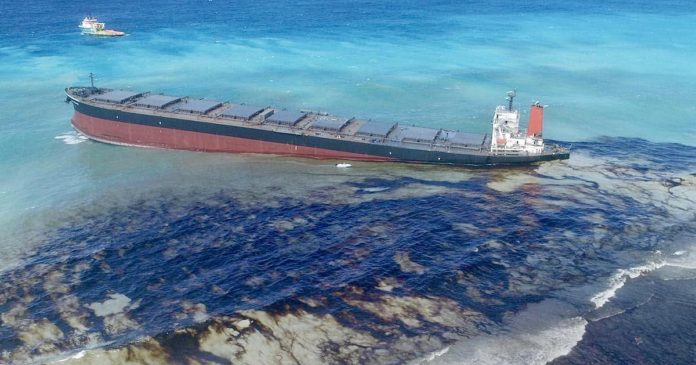
Breaking! Massive Oil Spill From Grounded Ship In Mauritius, An Island Nation In East Africa, Is Causing An Environmental Disaster
You can help all animals and our planet by choosing compassion on your plate and in your glass. #GoVeg
RELATED ARTICLES
Amazon Faces Growing Backlash Over Selling Cruel Donkey-Hide Gelatin Products
Animal welfare advocates representing millions of people around the world gathered at Amazon HQ2 to hand-deliver over 370,000 petition signatures demanding that Amazon ban...
Man Charged With A Felony For Leaving His Dog Tied To A Fence During Hurricane Milton
A 23-year-old man has been charged with aggravated animal cruelty, a third-degree felony, after footage of his abandoned dog went viral just before Hurricane...
Colorado Officials Call Off Search For Wolf Pup Left Behind After Copper Creek Pack Was Captured
A picture of the suspected fifth wolf pup of the Copper Creek pack. Photo by: Colorado Parks and Wildlife
Conservationists and wildlife advocates are outraged...
Popular stories
News
Breaking! Beyond Meat Launches New E-Commerce Site In China Featuring Their Signature Plant-Based Beyond Pork
To continue making plant-based meat accessible to more consumers around the world, Beyond Meat announced the launch of its new e-commerce site on JD.com,...
!! Coronavirus
ASPCA Launches $5 Million Dollar COVID-19 Relief & Recovery Initiative To Help Struggling Pet Owners & Animal Shelters
To assist pet owners and shelters affected by the devastating COVID-19 pandemic, the ASPCA is launching the ASPCA Relief & Recovery Initiative, a $5...
News
New Bill Requires Creation Of A Dedicated U.S. Department Of Justice Division To Ensure The Enforcement Of Animal Cruelty Crimes
Senator Mike Braun of Indiana and Senator Sheldon Whitehouse of Rhode Island have introduced the bipartisan Animal Cruelty Enforcement Act to ensure that the federal government...


